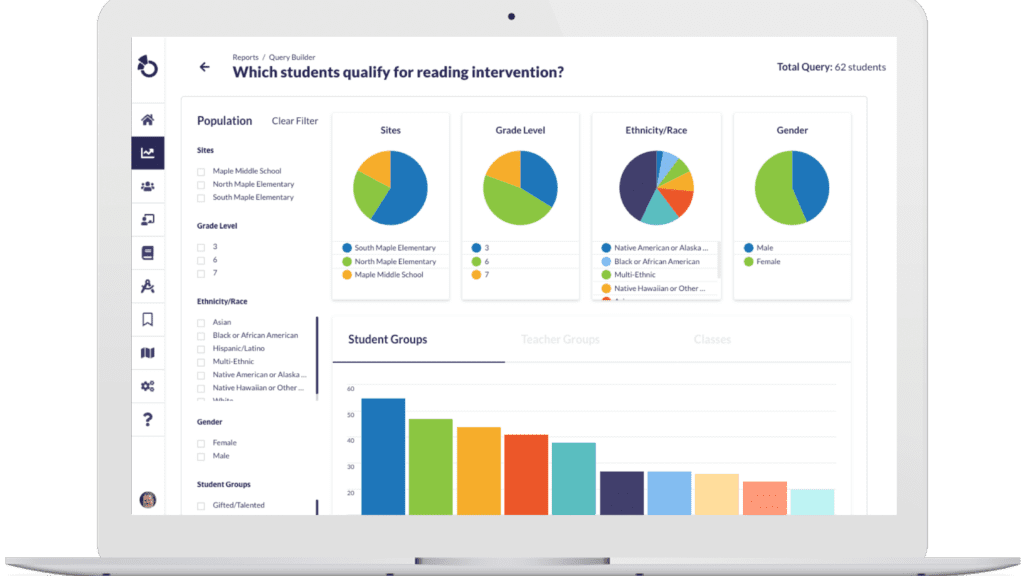Interview with Sheri Peacock, Associate Superintendent for Student Achievement at East Moline School District
A Conversation From Our Regional Workshop
This interview took place at the 2022 Marquardt School District 15 Otus Workshop. As part of this time of learning and collaboration, we were able to sit down with Sheri Peacock, the Assistant Superintendent at East Moline School District. Enjoy this wide-ranging discussion on how EMSD has utilized Otus and what lies ahead for this exciting partnership.
Our Regional Workshops are an opportunity for Otus users to learn more about Otus while networking with innovative educators from school districts in their region. All Otus workshops are free to educators, including those not currently using Otus, and are designed to support their professional learning and growth.
Read: Three reasons you don't want to miss an Otus Regional Workshop!
Three Key Takeaways from Our Conversation with Sheri Peacock
1) The right tools for the job.
When you have the proper tools, like Otus, you aren't spending time gathering data; you are focused on what matters – your students and their growth. Otus gives educators time back to focus on student growth by offering an integrated platform that supports:
2) Slow and steady wins the race.
A slow, intentional implementation with milestones and planning ensures long-term adoption and positive experiences for teachers. With Otus, your dedicated Client Experience Partner is right by your side every step of the way, helping to identify your school's initiatives and implement your custom-tailored plan at your desired pace.
3) Alone we can do so little; together we can do so much.
Be sure to network and participate in product improvement communities. Otus is built for teachers, by teachers, and our team looks at everything from a teacher's perspective. We pride ourselves on truly listening to our users and using that feedback to drive product improvement.
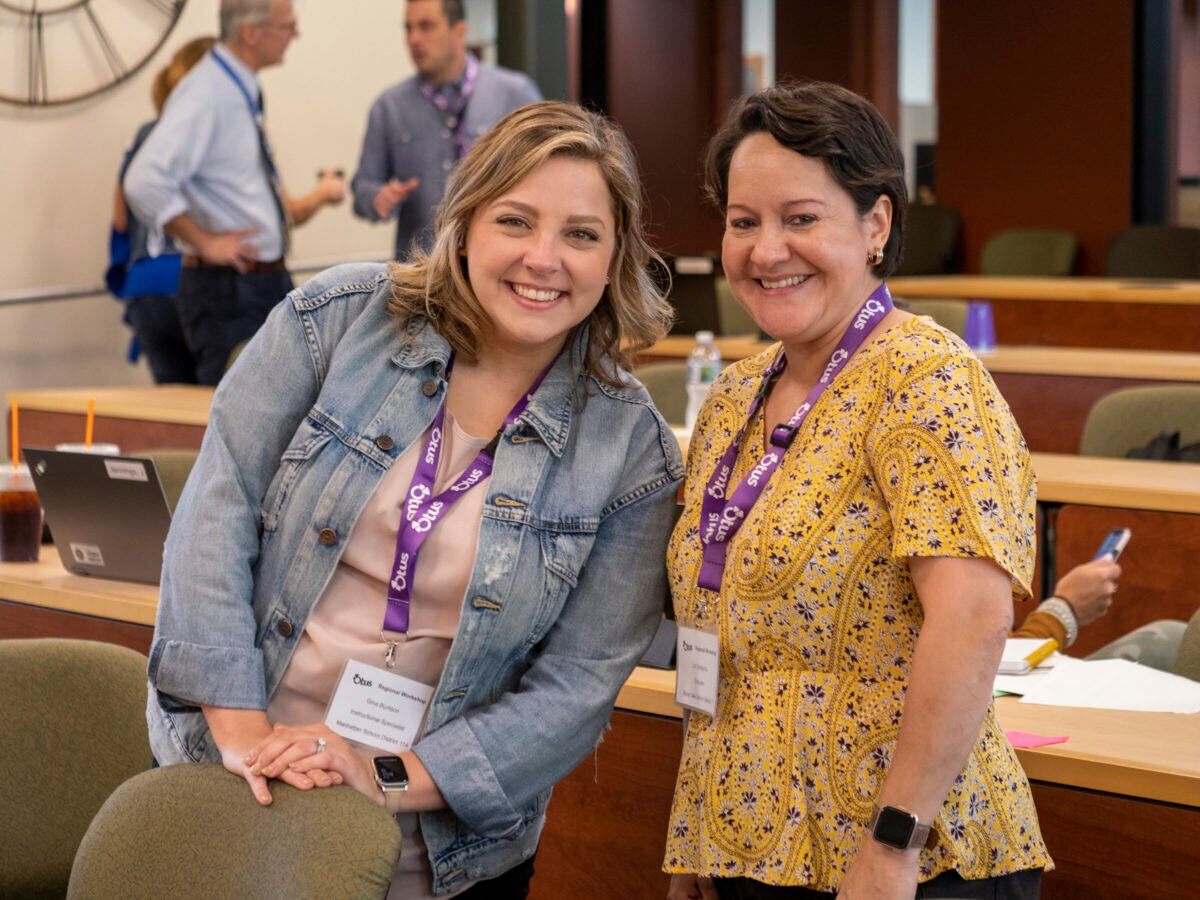
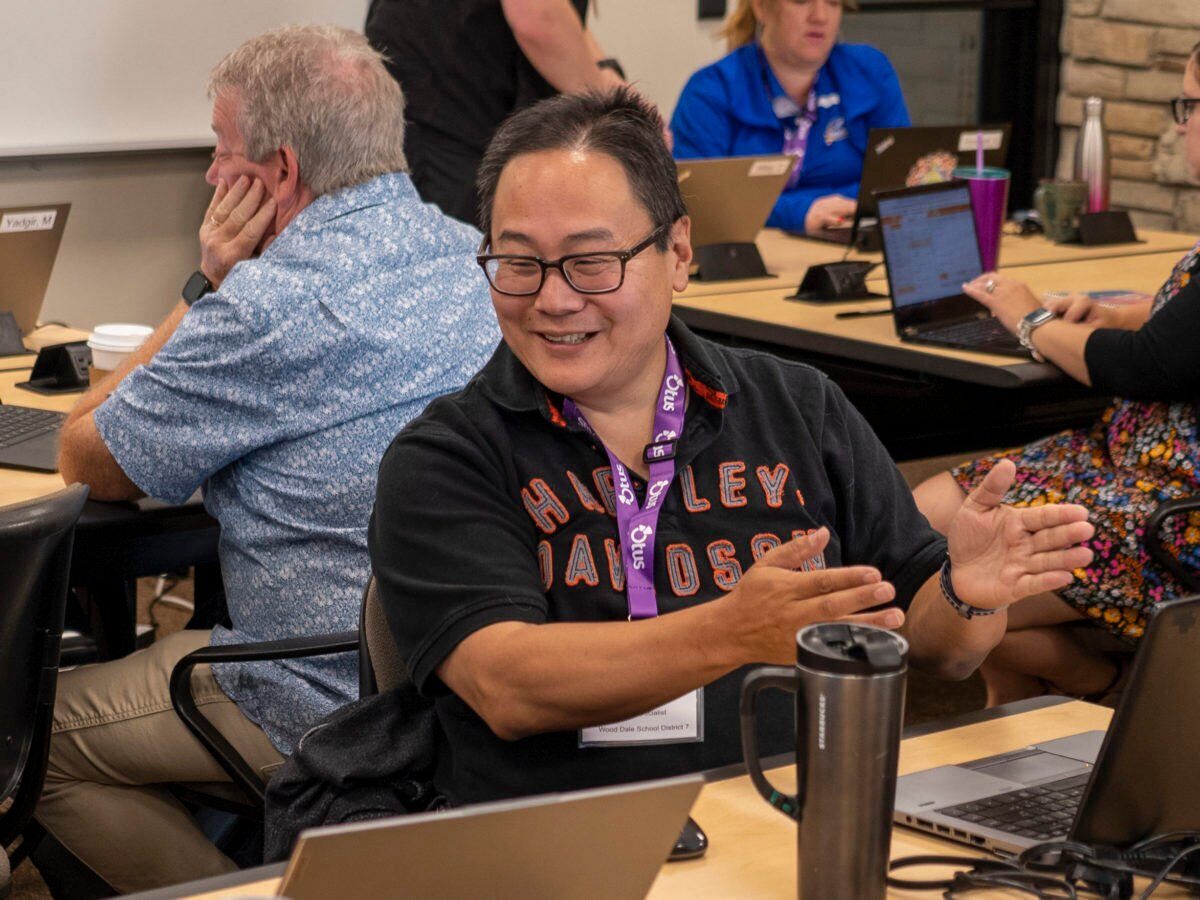
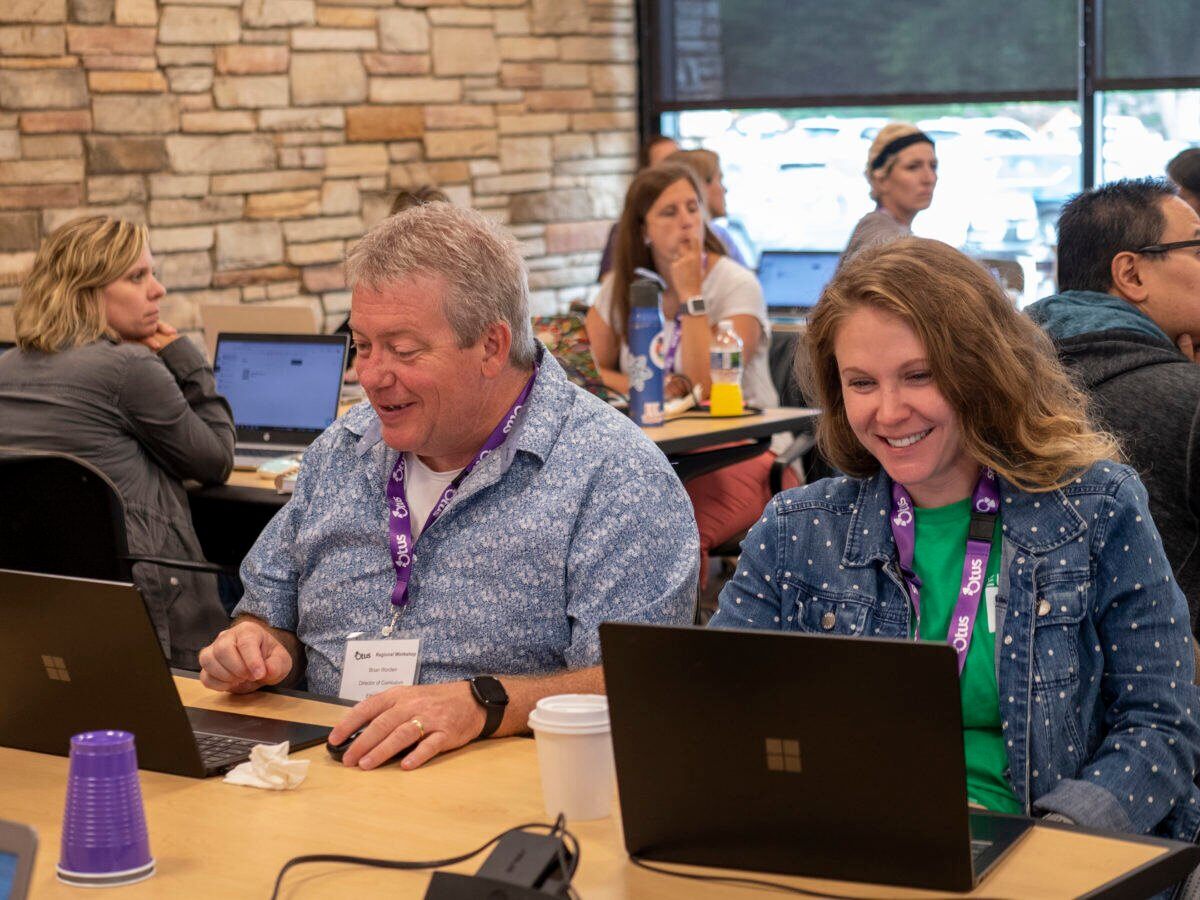

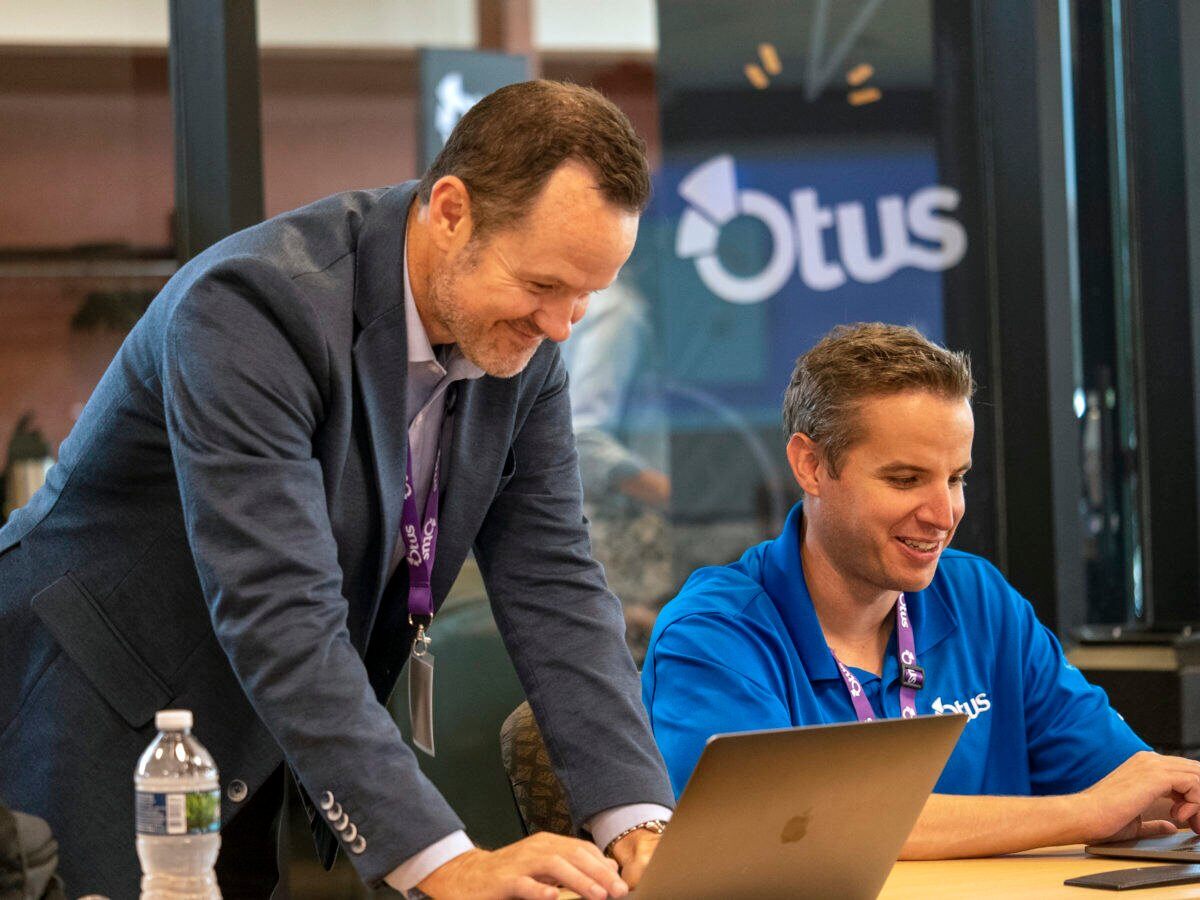
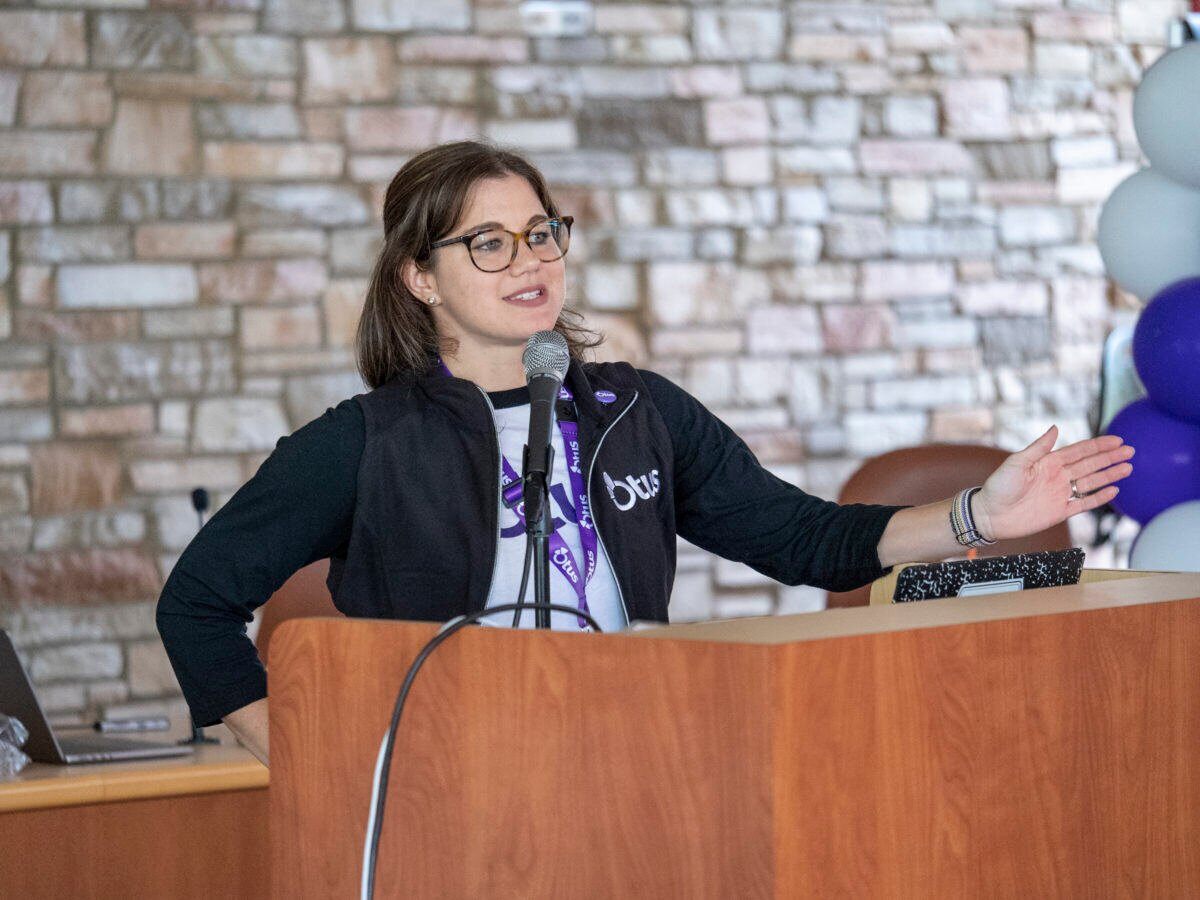
Interview Transcript
Kendell (00:10)
Can you start us off by just sharing your name, roles, school district, just a little bit more about you?
Sheri Peacock (00:24)
Yeah, I'm Sherry Peacock. I'm the Associate Superintendent for Student Achievement for the East Moline School District, which is in East Moline, Illinois.
Kendell (00:34)
Well, nice to officially meet you on camera. Thank you so much for doing this with me. Sherry, can you tell us just a little bit more about East Moline's Otus implementation thus far in your journey?
Sheri Peacock (00:45)
Yeah, we started pre-pandemic. We were starting to look for more of a comprehensive solution. We were moving towards standards-based grading. But the place we really wanted to start was student-centered standards-based assessments and looking at that data.
So when we ran across Otus, it was like, oh, my goodness, assessments. We can start there. Moving to standards-based grading, and it's a great way to have a portal for kids, parents, teachers, everybody to see the data. So for us, just starting out really small is important. So just thinking about the one piece that we needed, and then each year we've added something on.
For example, that was way back, 2019-20 when we first started with Otus. But now we're to the point where we're transitioning to standards-based grading this year, and then by next year, we'll have the portal open for parents to view grades, and we will be using it so much more robustly than what we are now.
Kendell (01:59)
A slow implementation is always the move.
Sheri Peacock (02:03)
Very slow.
Kendell (02:05)
You just build and add on and people feel way more confident.
Sheri Peacock (02:09)
So we're hoping so, yes.
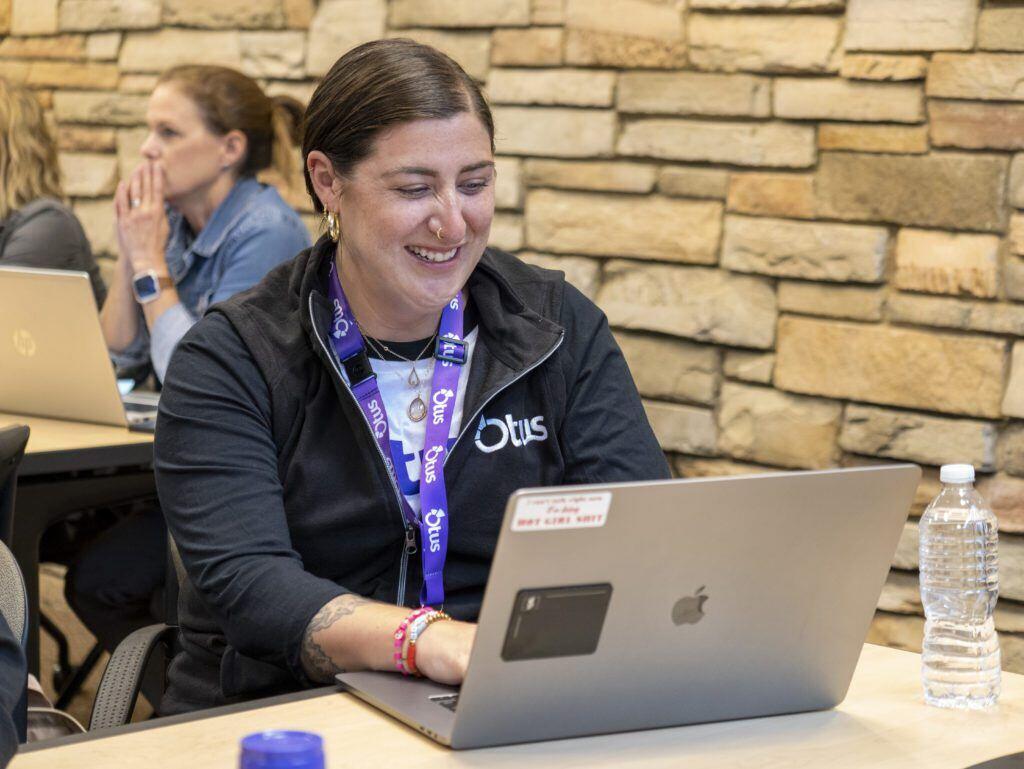
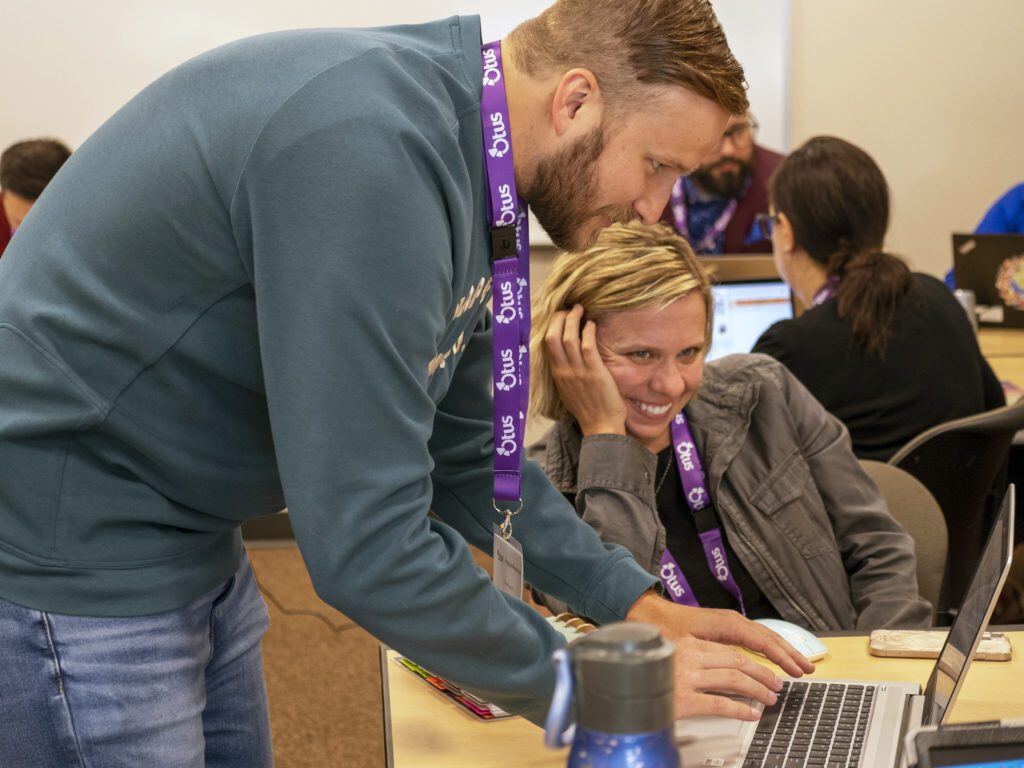
Kendell (2:09)
I think you've made the right choice there.
Were there any pain points in your school community that you felt like, in addition to some of those other initiatives you were addressing through your adoption of Otus?
Sheri Peacock (02:23)
I think for us, the pandemic did this for a lot of schools, forced everything very quickly to technology. And although our priority was getting technology in kids' hands, if you're not one-to-one or we weren't one-to-one at the time, you also have teachers that weren't terribly comfortable with technology.
So it has been a challenge to get us to a place where we've realized that the data that we put into Otus, the data that we're using to look at, to talk about by student, by standard teachers, feel comfortable with that technology because you've got the gamut, just like in any industry, you've got people that are your runners. They use technology, they embrace it readily, but then you also have people who are very reticent or just not as confident.
So for us, it was that combination of that slow rollout that helped to build the confidence with our staff to use the technology.
Kendell (03:29)
Absolutely. Yeah. I've heard you mention some of the initiatives that teachers are focusing on. How have teachers embraced Otus within your community?
Sheri Peacock (03:39)
Again, really slow. We started out with helping them use assessments that a group of us had created. So we have instructional coaches. So they kind of took the lead, created the assessments, started to get teachers and students using them, and then we slowly moved to the teachers. Like, you can create your assessments, you can put things in.
And then now we're just to that point where our professional learning communities. When we're all sitting together. Talking about by student by standard and maybe grouping kids for tier two instruction. We're getting to that point now where we're using Otus to really take a look deeply at each child. And then beyond that, groups of students and how do we move them closer to that grade level standard.
So it's been a really exciting journey.
We're using Otus to really take a look deeply at each child. And then beyond that, groups of students and how do we move them closer to that grade-level standard.
Kendell (04:35)
It sounds like it. And I love hearing that.
Sheri Peacock (04:35)
The conversation has shifted a little bit very much from Otus being, oh, it's where my kids now take an assessment to, it's gone from more of that compliance to that excitement. Like now we're seeing all the different possibilities it can afford us and to have we were coming to PLCs with data in so many different ways. People were writing things on paper, or an Excel spreadsheet or we've got it here, we've got it there.
Now to have all that data at your fingertips, where we're readily looking at it together. And what we love about Otus too is we're not the ones spending the time gathering and organizing the data. It's in there. We just pull it up and look at it now. Instead of spending all that time doing that, we're truly focused on instruction, which is what teachers and instructional coaches should be doing.
What we love about Otus, too, is we're not the ones spending the time gathering and organizing the data. It's in there. We just pull it up and look at it now. Instead of spending all that time doing that, we're truly focused on instruction, which is what teachers and instructional coaches should be doing.
Kendell (05:39)
Absolutely. I love to hear that the time is now given back to those students. Absolutely.
In your community, in thinking about those students, have students utilized the platform in a particular way that you've seen an impact on them? Or have students responded positively to the platform for these assessments?
Sheri Peacock (05:59)
They have. I think this is where our growth point will be this year, is to really start utilizing more student voice in it. So far, they've kind of, I don't want to say be a passive user because we're learning how to use it. We're not quite ready to engage them as much. But this year, because we've got the elementary piloting standards-based grading in ELA, we've got the middle school using the Portal just for grades as they transition into standards-based the next year.
We're going to be supporting in PLC's how to get kids more engaged in the Portal, how to be checking it for feedback, knowing where to go to look for missing assignments, knowing that I can upload something and show my teacher or, you know, have evidence of my learning.
So for us, although maybe other districts went a little faster or they're a little bit more engaged in that part of it, that's definitely an area of growth for us.

Kendell (07:02)
That makes perfect sense. I still think your implementation plan is sound. That's perfect. I love that. Talk to me more about standards-based grading this year.
Sheri Peacock (07:15)
So, brand new initiative. Well, again, prior to the pandemic, we had a much faster rollout, but when things kind of shut down, we had to take our focus off of that quicker pathway and roll it out to where it was a little bit more methodical.
So last year we had a small group of teachers who volunteered to pilot standards-based reporting just for the second semester. We had a meeting with their parents. We talked it through, like, what the shift looks like from traditional grades to standards-based. In our district we have really struggled over the last, I'd say a good six to seven years. Our view of instruction is student-centered standards-based instruction with rigor. We were talking standards. We were teaching through standards. We had targets and scales, but we had traditional grades that just weren't conveying what we were doing. And so now as we're moving to standards-based, that pilot group gave us this small little window of, okay, here are still our sticking points.
And so because we had that great pilot group, now this year all the elementary teachers are going to be piloting just ELA because we want them to be comfortable. They understand ELA standards. They feel comfortable talking to parents. We're working through all these common formative assessments for the grade levels. And so just starting with that with them is going to give them a lot of confidence.
And just like we were talking earlier today with the group that we brought to this workshop is that our end goal is to get teachers to the place, to wonder like, how did we ever do without Otus? We're hoping that move to standards-based is going to make them see, even though they're only doing it with one subject. Oh my goodness. Now my reporting actually matches my instruction. Let's just go.
And then at the middle school, their transition is going to take a little bit longer. So they're using points still like a traditional grade book because they're working through middle school issues such as sports eligibility and things that elementary schools don't have to think about when it comes to grades or standards-based grades.
But again, through that pilot group, through the ELA group at the elementary, again, I'm positive that they're going to see this is the missing piece for us. We've had standards-based instruction. Why are we not talking this language with parents? Why are we not reporting to them the way we're teaching and what students are gaining in our classrooms?
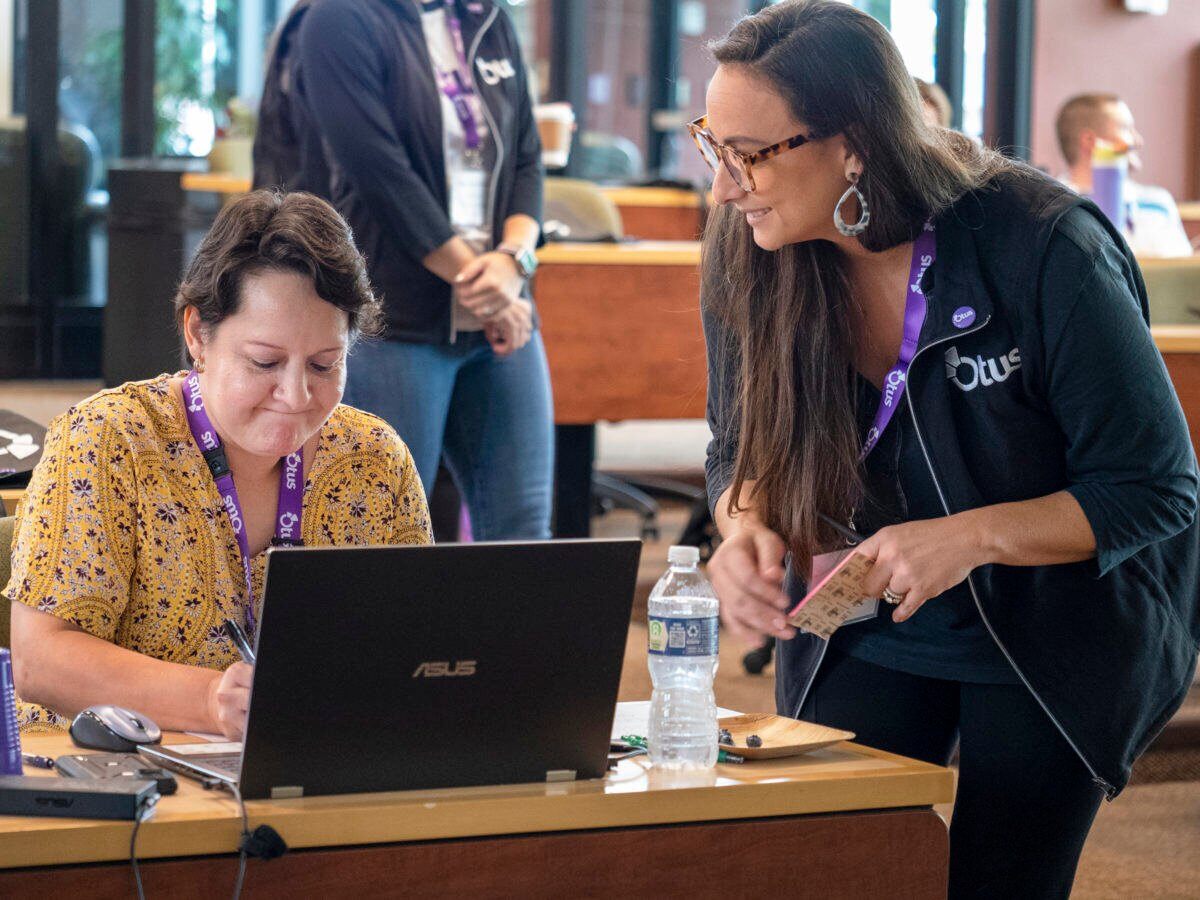
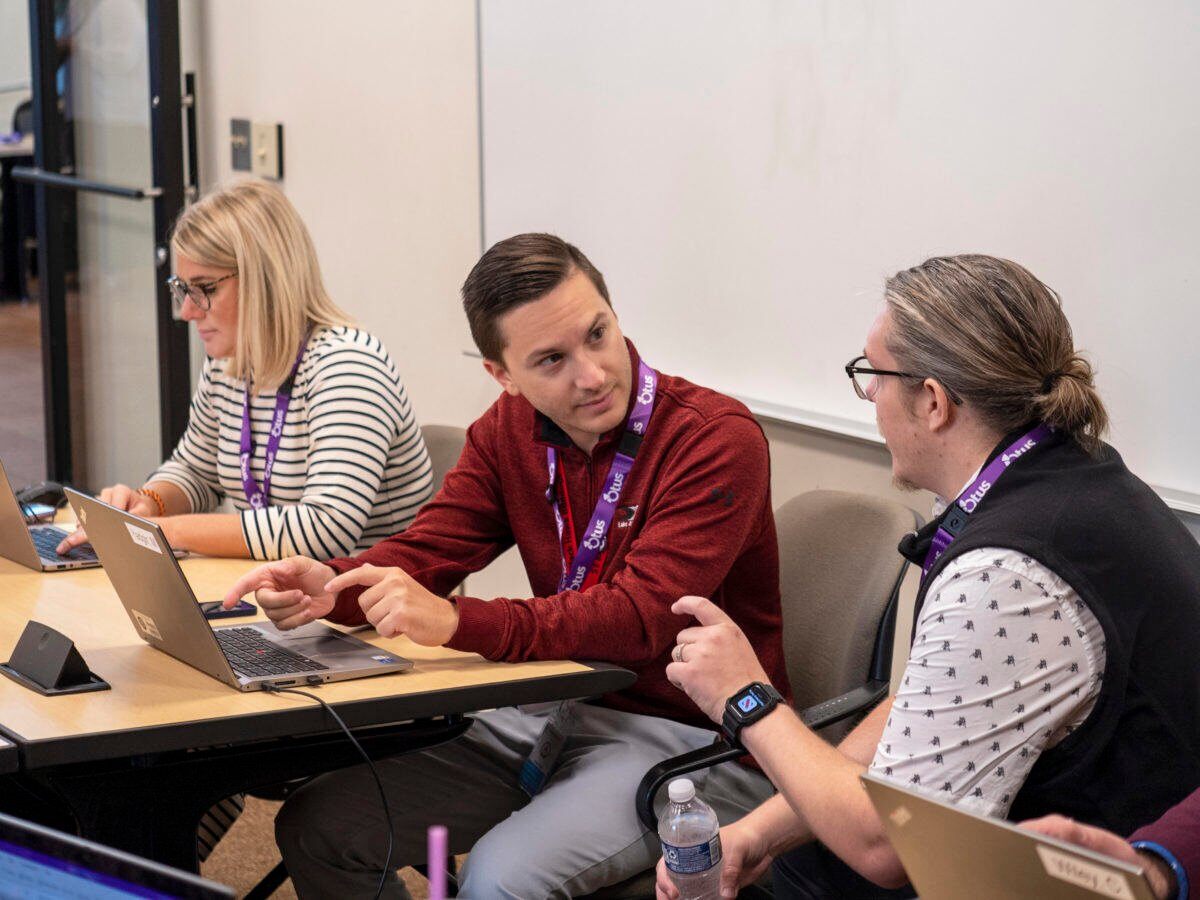
Kendell (10:13)
That makes perfect sense. I heard you say when you were sharing more about how you are launching standards-based grading, that you met with parents and really set the stage education-wise, right? Having standards-based grading in Otus, we oftentimes have a lot of schools just getting started, maybe being a little bit further behind where you all are at with standards-based grading. Do you have any advice for those looking to just get started with standards-based grading, things that you saw work really well that you all did internally to lay the groundwork for Otus?
Sheri Peacock (10:44)
Yeah, we have a challenge, like many other districts do maybe, we have for our kind of small PreK through 8th grade district, we have 41 different languages. So any communication we have with parents is very tricky because we want to make sure we're reaching all of our parents. So what we've done is we've had in-person parent meetings, we've had online parent meetings. Whatever we push out to parents about standards-based grading is done in a way that they can access it in their home language.
So for us, over this long time, from 2019-20 school year till now, we have made sure each step of the way we've included parents. And it was nice to get the focus group of parents in the spring who actually had finally that report card in their hand, because it's not real until you see it with your own child. It's all theoretical.
So as we roll it out this year, we're going to do the same thing as invite parents in and for parent-teacher conferences at the elementary, part of that is going to be helping parents understand this is where we're transitioning to. You're used to seeing A's, B's and C's. Now you're going to know what your kids know and are able to do, where sometimes a grade just can't convey that.
So I would just suggest to districts, I know it's very simple, but continuously think about how to communicate with families so that you give them plenty of time to ask questions, to look over the documents, to kind of get behind the philosophy of it, too, because I think we all default to, well, it worked when I was younger, why are you switching? Or I did fine in school and I got grades. And so helping them understand the why to why we're switching is a huge piece of it, too.
Kendell (12:55)
That's excellent advice. I think a lot of administrators will be very reassured on the path that they're heading when they start these initiatives having heard all of that.
The last question I have for you, since you've just shared such excellent advice, to any other administrators or school leaders who are either evaluating Otus or just getting started with Otus, any advice to them on their journey?
Sheri Peacock (13:18)
I think probably a couple of things.
One, I would suggest maybe reaching out through Otus and talking to other school districts about how they use and implement Otus, because I think it could be very different on the year of their implementation or their context of where their district is. So I would say definitely talk to people because I think the more that you talk to other districts that are maybe similar or going through maybe some of the same challenges would give you, like, oh, well, we can do that.
I think the second thing that really helped us is reach out to Otus, have somebody spend some time with you, talk to you about what Otus can be, because I think the way we started, we only saw this much, and the more time we've spent with Otus and the more work we've done with you, it has just completely changed our view of this is so much bigger than we ever thought it could be.
the more time we've spent with Otus and the more work we've done with you, it has just completely changed our view...this is so much bigger than we ever thought it could be.
The other thing I would say to anybody looking at Otus is, I truly haven't met with a company that goes to the length that you do in terms of listening to customer feedback. Even the things that maybe aren't possible yet or aren't thought of on Otus' end. They constantly come to us and say, what do you need? What do you need? Can we add this? Can we add it? So don't walk into talking to Otus with, well, you probably can't fix this, or we've got a unique situation. Just be open and share what you're looking to get out of it. Whether it's to start as simply as we did with just assessments very small. Are you looking at standards-based grading? Do you want a student and parent-friendly portal where they can see what kids are doing and learning in real time?
So the big two are just reach out, connect with other school districts who have gone through the Otus implementation, or directly reach out to Otus because I think just sitting down with Zach for us, he's such a great partner, and sometimes we don't know what we don't know, and he'll say, well, have you thought of this? No. Thank goodness you said that.
So now those are the two big things, just really reaching out and talking to Otus directly. I think those are the big two things that would show somebody what Otus can do for your district.
The other thing I would say to anybody looking at Otus is, I truly haven't met with a company that goes to the length that you do in terms of listening to customer feedback.
Kendell (16:10)
Well, thank you so much for sharing all of that. I really appreciated the conversation and your time and your expertise.
Thank you.
Sheri Peacock (16:18)
You are so welcome.
Related Resources
Request a demo!
See exactly how Otus can help your school accelerate student growth and improve student outcomes – all while saving educators time.
